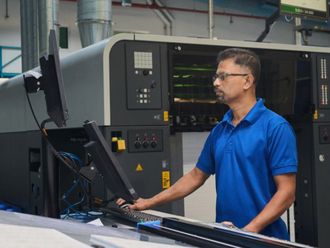Dubai: Iran, Opec’s fifth-largest crude producer, has the potential to generate more revenue from mining than it does from crude if the government puts more focus on developing the metals sector, according to Mojtaba Khosrowtaj, first deputy minister in charge of trade at Iran’s Ministry of Industry, Mine and Trade.
Metals such as copper and lead and higher-priced rare earth elements could be worth “much more” than the nation’s oil industry revenue of about $30 billion (Dh110.19 billion), assuming crude at $40 a barrel and exports of 2 million barrels a day, Khosrowtaj said in an interview. Iran is opening $30 billion of energy projects and $29 billion of mining deals to investors once international sanctions are lifted.
Iran has more than 3,000 active mines, mostly privately owned, according to the US Geological Survey. The sector is still using equipment developed 15 or 20 years ago because of lack of funds due to sanctions, Khosrowtaj said.
“We could use new technologies,” he said. “Expansion of construction projects in oil and gas or mining is reliant on banks and insurance companies, and sanctions have delayed them.”
Iran produced 2.7 million barrels a day in October, behind Saudi Arabia, Iraq, the UAE and Kuwait, according to data compiled by Bloomberg. For metals in the region, Iran is the largest producer of iron ore, crude steel, manganese, lead, cement gypsum and copper, according to USGS data.
Domestic and overseas companies need to be encouraged to develop the mining sector, Khosrowtaj said. “The Iran of the future is one where mining can gradually start replacing oil. We have asked potential investors to pay attention to the mining sector.”
Some 37 billion metric tons of minerals valued at $700 billion were discovered in Iran from exploration work at 50 metres [164 feet] underground, he said. Reserves may be greater if exploration work is done deeper in the ground and on a larger scale, he said.
The end of sanctions would lead to the unfreezing of assets worth at least $30 billion, access to international finance and foreign direct investment, higher energy exports and the chance to import more modern industrial technology. About a dozen European trade delegations have visited Iran since the nuclear pact was signed in July, including groups from France, Germany and Italy.
“With lifting of sanctions, there will be new opportunities that will accelerate growth,” he said.












